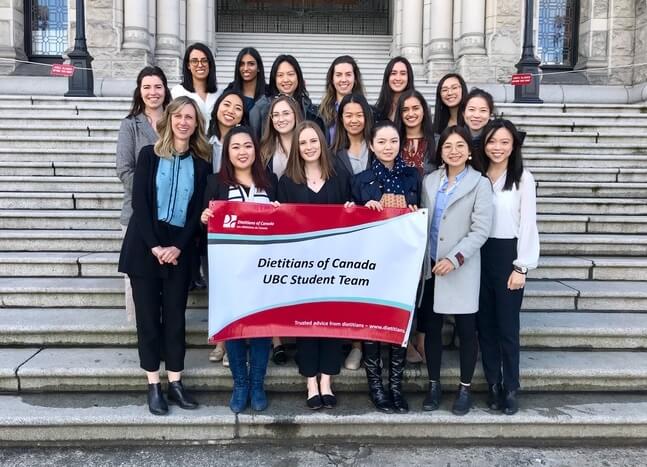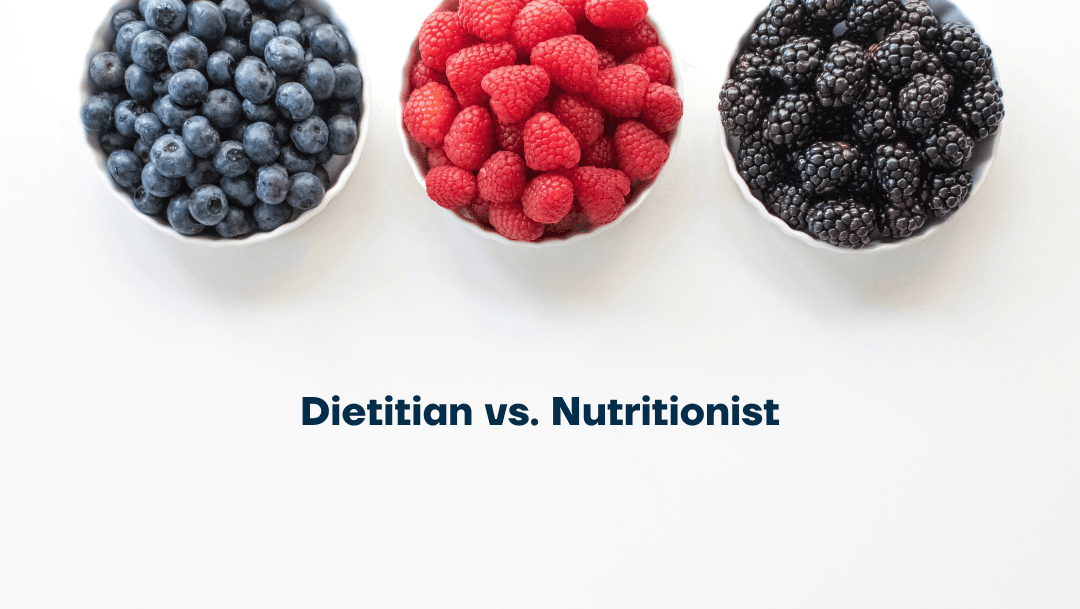All Categories
Featured
Table of Contents
-1
And if you wish to obtain into the food and nourishment market, it's worth recognizing what those differences are currently. This quick breakdown ought to give you a great idea. Dietitians aid their clients navigate the connection between food and health. They do this by equating the most current clinical and clinical study right into useful guidance that people can put on their lives.
-1Nutritional experts generally operate in team settings, enlightening wider communities and organisations. They can likewise operate in various other fields such as: Review policies and guidelines around foods, including high quality checks. Ensure that food is created to satisfy food safety requirements. Create programs and interventions to aid the wider public address food issues.
-1The major difference to recognize is that the nutrition profession isn't managed in Australia. This indicates that technically, any individual can call themselves a 'nutritional expert', while you must have an authorized dietetics certification to be a dietitian. To secure properly practising nutritional experts, the Nutrition Culture of Australia has a Register of Nutritionists.
-1The ordinary income for a nutritionist is $75,000 per year. This can vary from $60,000 to $90,000, depending on the role.
Nutritionist Credentials – Waikiki
-1Keen to collaborate with customers on their dietary goals sooner instead of later on? Examine a degree in nourishment. Want to take your experience even further, and help deal with diet-related medical problems? After that a profession as a dietitian could be ideal for you. In either job, you will play an essential role helping individuals make the very best decisions for their diet regimen and health and wellness.

-1
Dietitian and nutritional expert: both of these professions work around diet and food, however are they the exact same? What precisely is the distinction between a dietitian and a nutritionist?
-1In spite of the distinctions in credentials between a dietitian versus nutritional expert, the wages are rather similar. While there is a higher demand for certified dietitians, nutritionists have a tendency to have higher work satisfaction - Mental Health Nutritionist.
Qualified Nutritionist – Waikiki 6169
-1You can operate in a large range of industries for a wide array of organisations or perhaps for yourself. If you're still not exactly sure concerning whether to become a dietitian versus a nutritionist, the following may help you make a decision. As a dietitian, you might appreciate a profession as a: a signed up dietitian or dietitian nutritional expert is someone who works in the basic location of dietetics, suggesting diet plans, supplements and dietary help to sustain healthy and balanced lifestyles and illness monitoring.
-1To come to be country wide recognized, dietiticians should join the Accredited Practising Dietitian (APD) program and come to be a member of Dietitians Australia. Whether dietitian or nutritionist is a far better career for you far better depends upon your personal preferences. It is necessary to keep in mind that all dietitians are nutritionists, however not all nutritionists are dietitians.
Functional Nutritionist – Rockingham 6169
-1Both careers are included with assisting individuals achieve their wellness goals with food education and learning, but there are many factors that establish them apart. If you have an interest in suggesting individuals on nutritional and dietary issues, you may have what it requires to come to be a nutritional expert or diet professional. The area of food science is exceptionally wide, supplying a series of profession possibilities to qualified experts.
-1Nutritionists specialise in supplying evidence-based advice and solutions connected to nourishment. With regular visits, nutritionists assist clients comprehend the web link between diet plan and health so they can make even more enlightened decisions around food and live a much healthier lifestyle. Nutritional experts usually work with clients on a specific basis, although they also function with groups with a certain purpose (e.g.
Local Dietitian
-1Although you do not have to research to end up being a nutritional expert, doing so can improve your opportunities of progressing your profession in this area. Courses that have a specialized in Nourishment, like the HLT43015 Certificate IV in Allied Health And Wellness Support (Nutrition and Dietetics Expertise), are made to develop your understanding of the relationship in between food and health and wellness, enabling you to supply professional advice on nutrition.
Pregnancy Nutrition
-1Jul 09, 2018 Australia currently does not regulate the specialist titles 'nutritionist' or 'dietitian', leaving a wide market for false information if you do refrain from doing your very own research study. The media likewise often tends to utilize both terms interchangeably, making distinctions in between credentials significantly challenging. Continue reading as we damage down the differences in between these occupations, their relevant credentials, what they can do for you and what to try to find when seeking an expert to help you.
-1So you have made a decision that you need to enhance your health and that working with your diet plan is the very best location to begin. You have actually heard about the benefits of collaborating with a dietitian or a nutritional expert, however you aren't sure which you require or just how to select who to deal with.

-1
The primary differences are the type of study that has actually been finished by each expert, and the guidelines connected to each title. A dietitian has met the national and worldwide requirements for expert regulations. Dietitians are the only nutrition professionals to be controlled by regulation, and they are regulated by an ethicality (similar to medical professionals are) to guarantee that they always function to the highest possible requirement.
-1On the other hand, someone who has the title of a nutritionist is not protected by legislation in several nations, and it is not a controlled term. All dietitians are considered to be nutritionists; nonetheless, nutritionists without a dietetics certification can not handle the been experts role of a dietitian. For someone to end up being a registered dietitian, they require to have completed a 4 year university degree in Nutrition and Dietetics, or a 3-year scientific research degree complied with by a Masters Degree in Nourishment.
Accredited Sports Dietitian

-1
Currently that all of this info has been provided, we can reroute our focus to the opposing end of this diet professional vs nutritionist debate. Dietitians will certainly still organise food and nutrition strategies, in order to promote a healthy way of living among their customers.
-1For instance, diet professionals can also operate in instructional facilities such as Colleges. In comparison to this, the largest difference between a nutritionist and dietitians in the UK is that nutritional experts to work in clinical sectors. Registered Dietitian Eating Disorders. Instead, they can work within the fitness and health sector in functions such as dietary advisors in food circulation firms, as well as an individual instructor that provides recommendations and suggestions to their customers
-1This brings us on to discussing the following difference between a diet professional and nutritionist in the UK. You may have reviewed this heading and examined 'is there a distinction between a diet professional and a nutritionists' clients?'. It's just all-natural to think that anyone seeing either professional will be doing so for similar reasons, yet this is not the situation.
Table of Contents
Latest Posts
Our Clinic
Weight Concerns - Perth – Kelmscott 6111
Helplines
More
Latest Posts
Our Clinic
Weight Concerns - Perth – Kelmscott 6111
Helplines